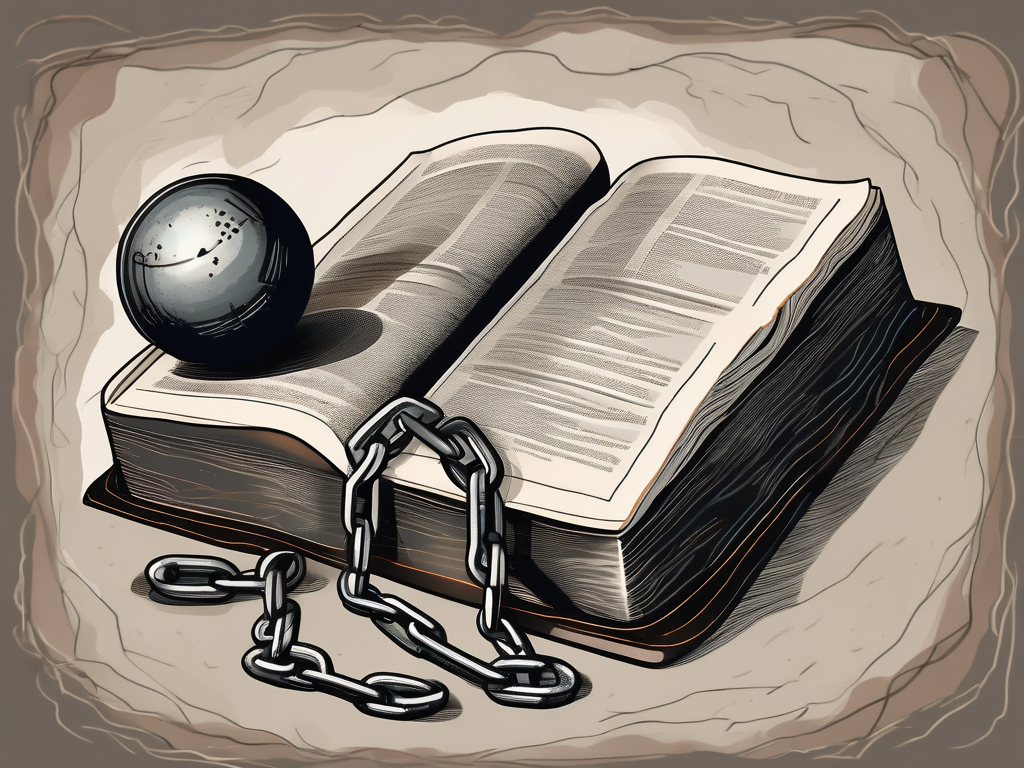In recent years, the topic of women in leadership has sparked lively discussions and debates within the religious community. As we explore this subject, it is crucial to approach it with an open mind and a willingness to understand the biblical contexts surrounding women in leadership. Let’s delve into both the Old and New Testaments to gain insight into this important issue.
Understanding Biblical Contexts
When studying the Bible, it is crucial to consider the historical and cultural contexts in which the passages were written. By doing so, we can better grasp the intended meanings and messages of the scriptures. This is especially significant in understanding the Bible’s perspective on women in leadership.
The Old Testament and Women Leaders
Contrary to commonly held assumptions, the Old Testament contains several instances where women held positions of authority and leadership. One such example is Deborah, who served as a judge and prophetess during a time of societal upheaval. Her wisdom and guidance played a vital role in leading and restoring the nation of Israel.
Deborah’s leadership was not an isolated case. Throughout the Old Testament, we find other women who played significant roles in shaping the destiny of their people. Take, for instance, Esther, a courageous queen who saved her people from destruction. Despite facing adversity, Esther exhibited exceptional leadership qualities, displaying the power of women in influential roles.
Another noteworthy figure is Priscilla, who is mentioned in the New Testament but was actively involved in spreading the message of Christianity. Alongside her husband Aquila, she dedicated herself to teaching the Word and contributed to the growth of early Christian communities.
The New Testament’s Perspective on Women Leaders
The New Testament presents a varied but equally significant perspective on women in leadership. While some passages seemingly restrict women’s roles, others showcase their active involvement in ministry and leadership. Therefore, it is essential to carefully study these passages and understand their broader context.
Paul’s letters can be a source of contention when discussing this topic. Some argue that his teachings limit the leadership roles of women in the church. However, it is crucial to interpret Paul’s writings holistically and in light of cultural norms of his time.
Furthermore, the role of women in the Corinthian church provides us with valuable insight. Women were actively participating in worship gatherings, with Paul himself mentioning female prophets, emphasizing the importance of women’s contributions in faith communities.
It is important to note that the New Testament also highlights the influential role of women like Mary Magdalene and Mary, the mother of Jesus. Their faithfulness and dedication to Christ serve as examples for all believers, regardless of gender, to follow.
As we delve deeper into the biblical texts, we discover a rich tapestry of stories and teachings that challenge our preconceived notions about women in leadership. By understanding the historical and cultural contexts, we gain a more comprehensive understanding of the Bible’s perspective on this important topic.
Key Biblical Figures in Women Leadership
Examining the lives of biblical women in leadership offers valuable lessons and inspiration for modern times. Let’s explore some influential figures and their noteworthy contributions.
Deborah: A Judge and Prophetess
Deborah’s story showcases her exceptional wisdom and courage. Despite societal expectations, she served as a judge and prophetess during a time of immense challenges. Her leadership provides a powerful example of female strength and influence in biblical history.
Deborah’s role as a judge was unique, as she was not only responsible for settling disputes but also for delivering divine guidance to the Israelites. Her wisdom and discernment were highly respected, and people from all over the region sought her counsel. Deborah’s ability to lead with confidence and authority challenged the prevailing gender norms of her time.
Furthermore, Deborah’s courage was evident in her military leadership. When the Israelites faced a formidable enemy, she summoned Barak to lead the army into battle. However, Barak hesitated, insisting that Deborah accompany him. Without hesitation, Deborah agreed, but she prophesied that the victory would be credited to a woman. Her fearlessness and trust in God’s guidance ultimately led to a decisive victory for the Israelites.
Esther: A Queen with Courage
Esther’s story is one of bravery and faith. As a queen, she risked her life to save her people, demonstrating that women can play significant roles in delivering justice and shaping the course of history.
Esther’s rise to power was unexpected. After winning a beauty contest, she became the queen of Persia. However, her position did not shield her from the challenges faced by her people. When a decree was issued to annihilate the Jews, Esther faced a life-or-death decision. Despite the risks, she approached the king uninvited, a move that could have resulted in her execution. But her courage prevailed, and she successfully pleaded for her people’s lives.
Esther’s story teaches us that leadership requires sacrifice and a willingness to stand up for what is right, even in the face of danger. Her faith in God and her determination to protect her people serve as an inspiration for women leaders today.
Priscilla: A Teacher of the Word
Priscilla’s partnership with her husband Aquila serves as a testament to the shared leadership and influence they possessed. Together, they guided and instructed Apollos, contributing to the growth and spread of Christianity.
Priscilla and Aquila were tentmakers by trade, but their impact extended far beyond their profession. They were known for their hospitality and their deep understanding of the Scriptures. When they encountered Apollos, a passionate preacher who lacked a complete understanding of the gospel, they took him under their wing. Priscilla and Aquila mentored Apollos, teaching him more accurately about Jesus and helping him become a powerful evangelist.
Priscilla’s role as a teacher of the Word highlights the important role women played in the early Christian community. Her partnership with Aquila exemplifies the value of shared leadership and the impact it can have on the growth and development of others.
Overall, these biblical women in leadership demonstrate the diverse ways in which women have influenced and shaped history. Their stories inspire us to embrace our unique strengths and gifts, challenging societal expectations and making a lasting impact in our communities.
Controversial Bible Passages About Women Leaders
Within the Bible, certain passages have generated debate and differing interpretations regarding the role of women in leadership. Let’s consider a couple of these controversial texts and their implications.
Paul’s Letters and Women in Church
Paul’s teachings, particularly in 1 Timothy 2:12, have stirred discussions for centuries. In this passage, Paul states, “I do not permit a woman to teach or to assume authority over a man; she must be quiet.” Some interpret this passage as limiting women’s involvement in church leadership, arguing that it establishes a hierarchical structure with men in positions of authority. However, others believe that this verse applies to specific cultural and historical contexts, and should not be understood as a universal command for all times and places.
When examining Paul’s letters, it is important to consider the broader context in which they were written. Paul often addressed specific issues within the early Christian communities he was writing to. In the case of 1 Timothy, scholars suggest that Paul may have been addressing a particular situation where women were teaching false doctrines or disrupting the order of worship. Therefore, the restriction on women in this passage may have been intended to address a specific problem rather than establishing a general principle.
Furthermore, it is worth noting that Paul also commends several women in his letters for their leadership and contributions to the early Christian movement. For example, in Romans 16:1-2, Paul speaks highly of Phoebe, a deaconess and benefactor of many, and in Romans 16:3-5, he mentions Priscilla and Aquila as his fellow workers in Christ. These examples demonstrate that Paul acknowledged and valued the contributions of women in the early church.
The Role of Women in Corinthians
Corinthians 14:34-35 is another passage that raises questions about women’s participation and leadership in the church. In this passage, Paul states, “Women should remain silent in the churches. They are not allowed to speak but must be in submission, as the law says. If they want to inquire about something, they should ask their own husbands at home; for it is disgraceful for a woman to speak in the church.”
However, scholars believe that specific cultural issues and disruptions in worship prompted Paul to address these matters, ultimately guiding the Corinthian believers to maintain order during gatherings. Corinth was known for its diverse population and the presence of various religious practices. It is possible that some women in the Corinthian church were engaging in disruptive behavior or speaking out of turn during worship services, leading Paul to address this issue and emphasize the importance of maintaining order and respect within the community.
It is also important to note that in other parts of his letters, Paul acknowledges the active participation of women in the Corinthian church. In 1 Corinthians 11:5, Paul discusses the appropriate attire for women when prophesying or praying in the church, indicating that women were indeed involved in these activities. This suggests that Paul’s instructions in Corinthians 14:34-35 should be understood within a specific context and not as a blanket prohibition on women’s participation in all aspects of church life.
Overall, when examining controversial passages about women leaders in the Bible, it is essential to consider the historical and cultural context, as well as the broader teachings of the Bible regarding the value and contributions of women. The interpretation of these passages continues to be a topic of discussion and debate among scholars and theologians, highlighting the complexity and richness of biblical interpretation.
Theological Interpretations of Women in Leadership
Various theological perspectives contribute to the ongoing discussion surrounding women in leadership roles within the church. This topic has been a subject of debate and exploration for many years, with scholars and theologians offering diverse viewpoints and interpretations. While there are numerous perspectives, two common viewpoints emerge:
Complementarian View on Women Leaders
In the complementarian view, leadership roles within the church are typically assigned based on gender distinctions, with men assuming primary leadership positions. This perspective draws on biblical teachings that highlight the unique roles and responsibilities of men and women. Proponents of this view argue that men and women have complementary roles, each with distinct strengths and purposes.
Complementarians often emphasize the concept of headship, which suggests that men are called to lead and have authority over women in both the church and the family. They believe that this hierarchical structure is ordained by God and is reflective of the divine order. According to this perspective, women are encouraged to serve in supportive roles, utilizing their gifts and talents to assist male leaders in fulfilling their responsibilities.
While some critics argue that the complementarian view can perpetuate gender inequality and limit the potential of women in leadership, proponents contend that it upholds the integrity of biblical teachings and preserves traditional values within the church.
Egalitarian View on Women Leaders
Egalitarians, on the other hand, advocate for equal opportunities for women in all areas of ministry and leadership. They believe that both men and women are called to serve and lead based on their spiritual gifts and qualifications rather than their gender. This perspective challenges traditional gender roles and seeks to dismantle any barriers that may hinder women from fully participating in leadership positions.
Supporters of the egalitarian view argue that biblical teachings should be interpreted in light of cultural context and that the early church had women in prominent leadership roles. They point to examples such as Phoebe, who was commended by the apostle Paul as a deacon and a benefactor of many, and Junia, who was recognized as outstanding among the apostles.
Egalitarians often emphasize the importance of equality, justice, and inclusivity within the church. They contend that limiting women’s leadership roles based on their gender not only contradicts the principles of equality but also hinders the church from fully utilizing the diverse gifts and perspectives that women bring.
While the egalitarian view has gained significant traction in recent years, it continues to face opposition from those who believe that it deviates from traditional interpretations of scripture and challenges long-held beliefs about gender roles.
In conclusion, the theological interpretations of women in leadership roles within the church are diverse and complex. The complementarian view emphasizes gender distinctions and hierarchical structures, while the egalitarian view advocates for equal opportunities for women based on their gifts and qualifications. The ongoing discussion surrounding this topic reflects the ongoing evolution of theological thought and the desire to discern God’s will for the church in the context of gender and leadership.
Modern Perspectives on Women in Religious Leadership
As societal norms and cultural perspectives evolve, modern religious communities are reevaluating the roles of women in leadership. Let’s examine the current landscape:
Women Leaders in Today’s Churches
Many churches have embraced gender equality in leadership positions, empowering women to serve as pastors, elders, and ministers. This shift allows women to actively contribute their skills, knowledge, and spiritual gifts to the growth and flourishing of their communities.
The Impact of Cultural Shifts on Biblical Interpretations
Cultural changes can influence how individuals interpret and apply biblical teachings. By recognizing the impact of societal shifts, believers can navigate discussions surrounding women in leadership with greater sensitivity and understanding.
Conclusion
In conclusion, the Bible provides a rich tapestry of stories, teachings, and perspectives on women in leadership. From the Old Testament to the New Testament and into modern times, women have played integral roles in shaping religious communities. As we engage in conversations about women in leadership, let us approach the subject with open hearts, thoughtful study, and respect for differing viewpoints. May we seek to honor and empower women to utilize their God-given gifts and talents for the growth and advancement of God’s kingdom.












